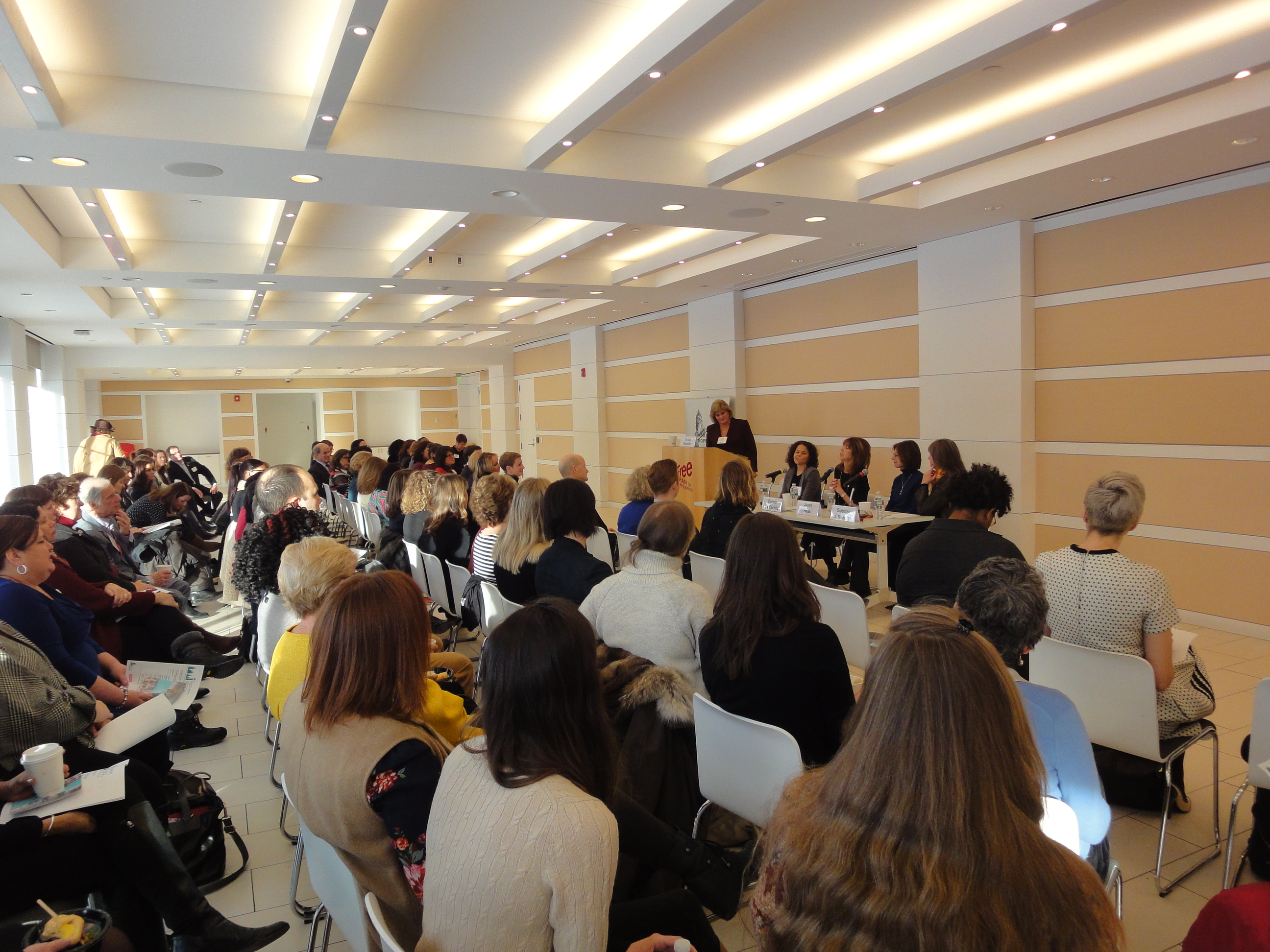Article originally published in the American City Business Journals on January 17, 2017
Throughout life we run into different types of people. There are those who see the glass as half empty, have a negative attitude about most things and are complacent with the status quo. There are also those who see the glass as half full, have a can-do attitude, embrace challenges and serve as a role model for others.
On Jan. 10, I had the privilege of attending a panel discussion in Philadelphia titled “Women Changing the City,” hosted by Center City Proprietors Association, at which five highly accomplished women spoke about their professional journeys and how they are making a difference in the lives of others.
The panel was moderated by Susan Buehler, a former Emmy award-winning reporter and producer for Philadelphia’s Fox News for eight years, who served as a role model and helped advance the status of women in broadcasting. She is currently chief communications officer at PJM Interconnection.
Patrice Banks, a materials engineer and automotive mechanic/technician, spoke about why she created Girls Auto Clinic – to take the stress and anxiety out of the experience of buying a car and the subsequent experience of purchasing auto repair services.
Banks stated, “It’s no secret that women generally do not understand vehicles – how they operate or how to maintain them. Most women hate the automotive buying and repair process because we feel misunderstood, taken advantage of, and/or mistreated.” Banks is out to change this.
Donna De Carolis, founding dean of Drexel University’s Close School of Entrepreneurship, the first free-standing, degree granting school of entrepreneurship in the U.S., spoke about her journey and her intense interest in educating students from across the University in entrepreneurship skills.
These skills are very valuable not only for those who become entrepreneurs, but also those who work in established businesses and in managing one’s professional life.
De Carolis stated, “The myth is that entrepreneurs are risk takers and that’s not entirely true. Entrepreneurs assess situations – they mitigate risk. They have a level of confidence that if X does not work out, I can go to Y.” This is a characteristic of all those who are successful over the long-term – if something isn’t working out, they have the confidence to pivot and try something new, and they know how to manage risk and develop options.
Janet Haas spoke of her journey as a physician, which was influenced by a severe illness in her family. She wanted to make a difference in the lives of people who faced adversity. This guided her medical journey toward brain injury rehabilitation and, later, to palliative medicine.
Haas’s desire to make a difference in the lives of others is evident in her role as chair of the William Penn Foundation. As written on its website, “[The Foundation] is committed to increasing high-quality, educational opportunities for economically disadvantaged students; supporting arts, culture and the development of accessible and vibrant public spaces; and protecting the Delaware River watershed.” There is no higher civic calling.
Siobhan Reardon, president and director of the Free Library of Philadelphia, told of her challenge at the Library – continuing to provide library services to the children and adults of Philadelphia in the face of reduced financial support from the city.
Reardon proposed shutting down 11 library branches to keep others open, but found that was a very unpopular decision with the citizens of the city. She and her staff found a solution, as all effective leaders do when faced with a challenge. They developed a creative plan to rotate closures and on those days, referred library patrons to “sister” libraries. A few years later, Philadelphia City Council restored partial funding, permitting the library to cease rotating closures.
There are those people who go to work every day for 45 years, are satisfied with the status quo and enjoy what they do. That’s fine for them. There are others who don’t enjoy what they do but never make a change. They complain about the way things are, but never do anything about it.
And then there are those like these five women who embrace change and are out to make a difference in this world.
Stan Silverman is the former president and CEO of PQ Corp. He also is founder and CEO of Silverman Leadership and is vice chairman of the board of trustees of Drexel University. Silverman earned a Bachelor of Science degree in chemical engineering and an MBA degree from Drexel University. He is also an alumnus of the Advanced Management Program at the Harvard Business School.


This is a positive step to a better solution. This is way to make real progress